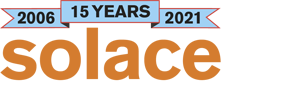4.4 key Points
The Phases of Stress
Stress may be a response to an immediate situation or it may be a cumulative condition.
Where there is a perceived threat or a challenge that feels like it is too much to cope with, it can trigger stress which can impact us physically, emotionally, cognitively & behaviorally.
The phases tend to follow like this:
This includes:
- the ‘fight or flight’ response – with bodily changes of increased heart rate, rapid breathing, sweating, nausea and chills, while our thinking narrows in focus.
- difficulty concentrating or to think clearly due to racing thoughts.
Emotional reactions might include:
- disbelief, feeling angry, suspicious, irritable, detached and unreal.
- People may panic or behave more rigidly and impact their relationships with others by blaming or poor communication
At that point, delayed reactions which were previously repressed, or feelings that were denied may surface, that can be overwhelming resulting in a feeling of powerlessness.
Characteristic responses may include:
- fear of returning to the site of the event, dreams or nightmares, anxiety, restlessness, insomnia
- muscular tension, tremors and exaggerated startle response, increased irritability and isolation
- depression and disturbing thoughts about survival, relief, guilt and grief.
Reactions usually become less intense and overwhelming.
The event can become integrated within an individual’s history depending upon their coping capacity and their social support.
Some are better able to cope with the feelings of hurt, beginning to make sense of things and to start taking an interest in everyday life again – and think of plans for the future.
- heightened stress reactions are substantially reduced
- they can think back without stress responses
While grief may not be resolved, it is accepted, and there is a re-engagement with life.

